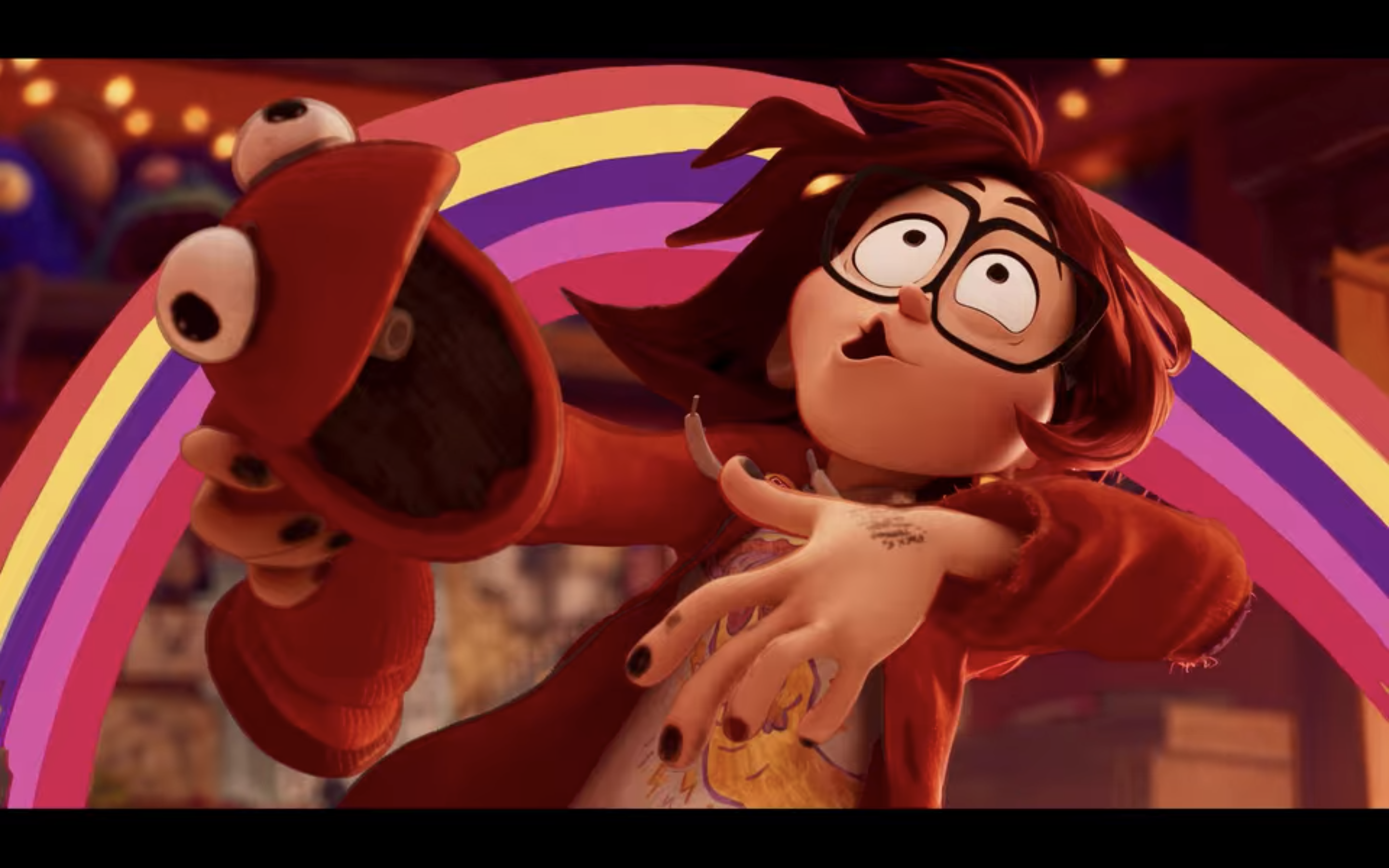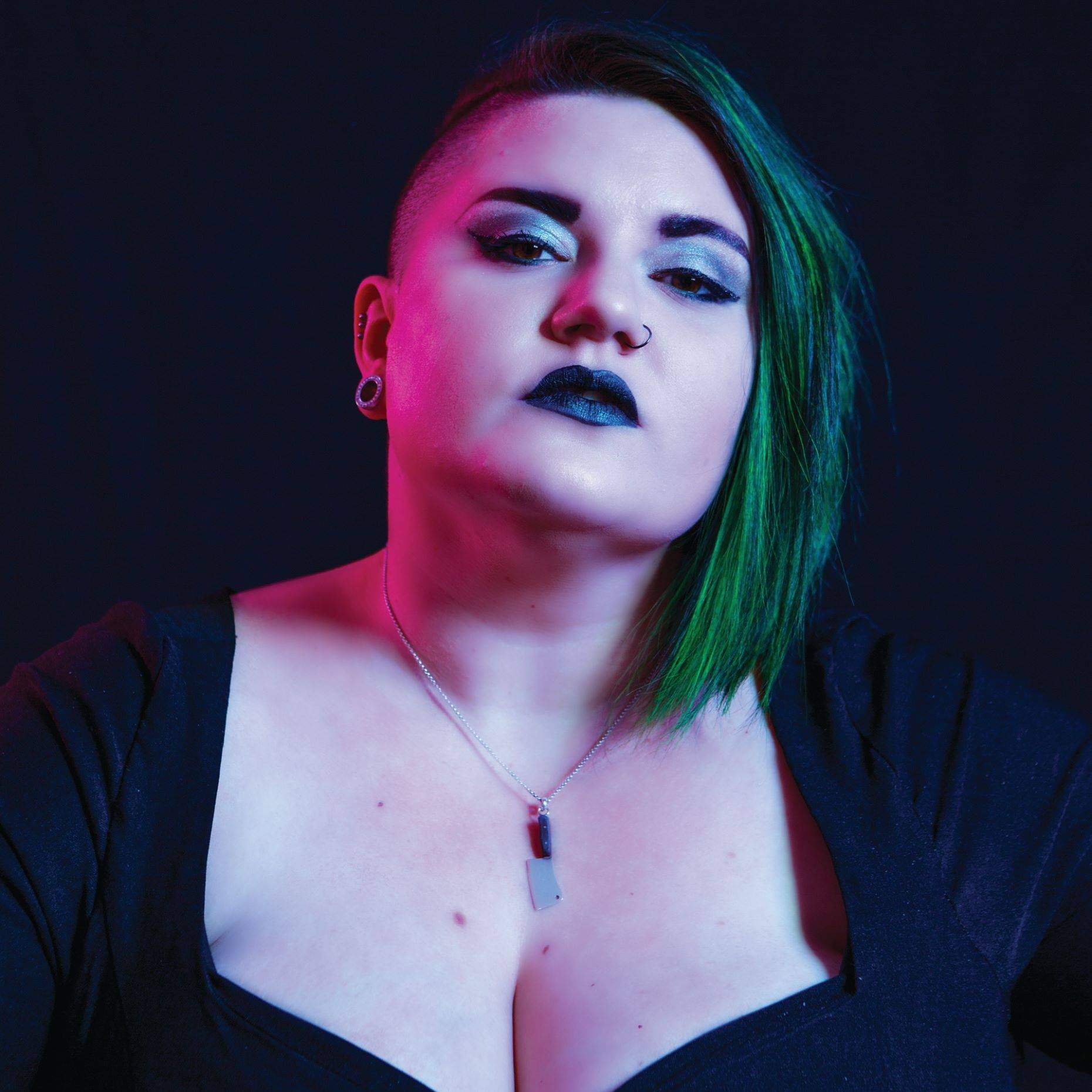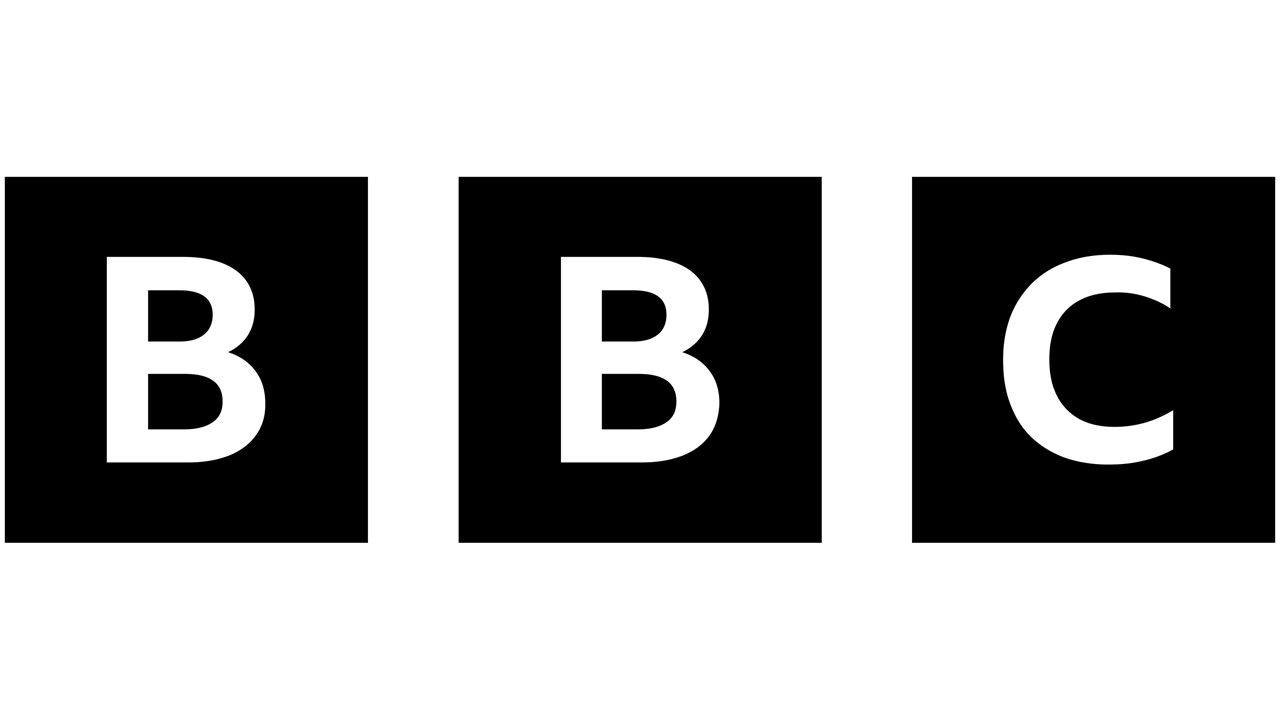Why ‘The Mitchells vs. the Machines’ is groundbreaking queer representation for animated films
'The Mitchells vs. the Machines's Katie Mitchell is an idol for confused queer kids making weird art.

This post contains mild spoilers for The Mitchells vs. the Machines.
Despite the progress made in animated television series like Craig of the Creek, She-Ra and the Princesses of Power, Adventure Time, Kipo and the Age of Wonderbeasts, The Owl House, and most notably, Steven Universe, animated films have been moving at a snail’s pace in regard to LGBTQ+ representation. Disney’s Onward released just last year was the first time the House of Mouse explicitly featured a LGBTQ+ character with most representation relegated to queer coded villains (I still love you, Ursula). Fans rejoiced when Laika’s ParaNorman in 2012 revealed the ultra-jock “Mitch” as gay in his final moment on screen, making him the first openly gay character in a mainstream animated film. Yes, you are doing the math correctly. The first time a mainstream animated film acknowledged an openly gay character was less than a decade ago.
Now, armed with an intentionally placed rainbow button, a laptop filled with absurdist comedy short films, a brain cluttered with anxiety, a desire to find “her people,” and a continued message that sometimes it takes time to figure out who you are, Katie Mitchell of The Mitchells vs. the Machines has arrived to rightfully claim the throne of queer representation in animated cinema.
Following the cold open, we’re introduced to Katie jamming out in her cluttercore bedroom adorned with mock B-movie posters and a rainbow comforter while “I Want More” by the riot grrrl band, bangs. I’d be lying if I said it didn’t look awfully familiar to this queer cinephile’s teenage bedroom and soundtrack. When Katie finally speaks to us, a candy-coated rainbow outlines her frozen image, highlighting her pen-drawn faux tattoos, permanent marker applied black nail polish, and her voiceover stating, “I’ve always felt a little different than everyone else.”
Sure, everyone feels like an alien imposter inhabiting a fleshy meat sack when they’re about to go off to college but that line paired with what we’ve already learned about Katie based on her bedroom sanctuary feels like a bat signal screaming “baby queer.” Of course there are plenty of non-queer kids that make weird movies and have excellent taste in film, but when you’ve spent a lifetime having to headcanon your own representation, these little hints are usually all we ever get.
Voiced by the openly queer Abbi Jacobson (Broad City) The Mitchells vs. the Machine's Katie is a filmmaker, and she’s one of those kids who has been making home movies for her entire life. A stack of her greatest hits include titles like Dial “B” for Burger, her iconic series of Dog Cop and in a blink-and-you’ll-miss-it moment, Y tu Papá También. The Dial “M” for Murder reference is probably easy for people to catch, but for those that are unaware, the real film Y Tu Mamá También by Alfonso Cuarón is one of the most well known pieces of queer cinema. For Katie to not only know the title, but to know it well enough to create a parody of it is such a beautiful nod to her identity.
"My parents haven't figured me out yet," Katie says following her showcase of her filmmaking creativity. "To be fair, it took me a while to figure myself out." Despite the “born this way” narrative pushed by politicians, pundits, well-meaning activists, and Lady Gaga, any most queer people will tell you that coming to terms with your identity is a journey. It doesn’t come easily for everyone, and sometimes it takes a while to accept the truth about who you are. Sure, we could read this line as just another misunderstood teen talking about how parents just don’t understand, but for queer kids (and queer adults for that matter) it’s a line that strikes one hell of a chord.
The latest updates, reviews and unmissable series to watch and more!
Later on in The Mitchells vs. the Machines, in the midst of the robot apocalypse, Katie teases her little brother Aaron over a possible crush on the next door neighbor. In typical little boy fashion, he rejects the suggestion complete with end-of-the-world dramatics only for Katie to reply, “Don’t hide your feelings, man. That’s no way to live.” Throughout the film, Katie mentions on numerous occasions that only her little brother seems to understand her. There’s an unspoken agreement between the two after Katie delivers this line. Aaron knows exactly what she means by this, likely because he remembers how hard it was for her when she was figuring it out.
Fortunately, all of the signs pay off toward the end of The Mitchells vs. the Machines after the Mitchells have successfully saved the world from being overtaken by robot overlords and is happily enjoying her first semester of film school. Her mom (Maya Rudolph) blurts out, “Are you and Jade official?" "And will you bring her home for Thanksgiving?” Boom. Affirming validation of Katie’s queer identity.
The moments referenced for the purpose of this article take up less than two minutes of the film’s runtime, and yet they are so, so important. Katie is explicitly queer, yes, but that’s not all she is. She’s funny, creative, messy, dramatic, brave, and a total weirdo that any kid, regardless of identity, can relate to. When we talk about wanting complex characters that don’t feel like stereotypes, we’re looking for characters like The Mitchells vs. the Machines' Katie Mitchell. She’s going to be a life-changing character in the lives of so many kids, and I can loudly admit that she’s exactly the type of representation I needed when I was figuring myself out too.
The true heart of The Mitchells vs. the Machines is the conflicted relationship between Katie and her dad Rick. The two are constantly butting heads and struggling to truly understand each other, but their inability to see eye-to-eye has nothing to do with Katie being queer. All too often, queer representation is relegated to a source of trauma or conflict, but that isn’t so with this one. Katie and Rick have strife because they’re a teenager and a dad. Their issues are based in generational gaps and differing interests, not in Katie’s identity. It’s so refreshing to see a queer character allowed to have turmoil in their life that has nothing to do with someone having an issue with how they happen to love.
Animated movies are hesitant to show LGBTQ+ representation because our culture is still not only struggling with how to explain queerness to children, but also flat out accepting that it’s even a possibility. Despite Disney’s one and only canonically queer character in a mainstream animated film, they are constantly under fire and boycotted for promoting a “gay agenda.” There is a very, very vocal minority of people that will scream at the top of their lungs that their children are being “indoctrinated” by even coding queerness in films, and that’s a scary thing for a lot of studios. James Gunn revealed last year that his original script for the live-action Scooby Doo featured long-time queer coded icon, Velma Dinkley, as explicitly gay, but the studio continued to water down her queerness until finally throwing in a boyfriend character just to make sure there wouldn’t be any questioning of her orientation.
It sounds ridiculous to say it, but Mike Rianda and Jeff Rowe genuinely took a risk by making Katie Mitchell queer. Many of the parental guide websites have been flagging the references to Katie’s queerness as “sexual content,” further proving that we have so, so far still to go with understanding LGBTQ+ youth. The Mitchells vs. the Machines is a genuinely wonderful film, and the importance of it featuring a queer protagonist cannot be overstated.
In the words of Katie Mitchell, “don’t let the world make you normal.”
BJ Colangelo is an award winning filmmaker and film analyst specializing in dismissed cinema and television. She writes about horror, wrestling, musicals, adult animation, sex and gender, kicking pancreatic cancer’s ass, and being a fat queer in places like Fangoria, Vulture, The Daily Dot, Autostraddle, Playboy.com, and a handful of books college students get assigned to read. She’s also the co-host of the teen girl movie podcast, This Ends at Prom, with her wife, Harmony.



